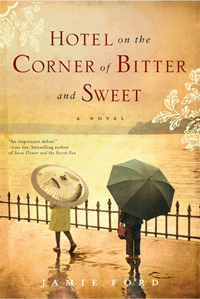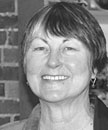Local history comes alive in earth-moving first novel
Published on Thu, Apr 9, 2009 by Mary BurnsRead More Arts & Entertainment
 Hotel on the Corner of Bitter and Sweet
Hotel on the Corner of Bitter and SweetBy Jamie Ford
($24.00, Ballantine)
I was sitting in my kitchen reading when I first heard the trucks. I thought they were too close to me, and my heart beat faster.
Then I realized that it was more like a steam engine, which wasn't as terrifying but probably much worse because of what it meant: they were taking the Japanese to the camp I'd just been reading about. By then, the eggs had boiled over onto the stovetop and the pot was nearly dry. I had to hope that I could get through this book without more damage.
The "Hotel on the Corner of Bitter and Sweet" of the title is the still-existing Panama Hotel in Seattle's Chinatown. In 1942 Seattle had both a Chinatown and Nihonmachi, or Japantown. Japan had already invaded China, and Seattle's Chinese did not associate with those in the Japanese community nearby.
At the time of Japan's bombing of Pearl Harbor, Chinese-American Henry Lee and Japanese-American Keiko Okabe are the only non-white students at their school, and they form a bond. They're at the ferry dock in Seattle, holding hands on their way home, when they realize that they're witnessing the evacuation of Japanese from Bainbridge Island.
This is an astounding first novel that incorporates much of Seattle's history in a number of settings that still exist. You'll want to read David Guterson's "Snow Falling on Cedars" and visit Seattle's Chinatown, knowing that author Jamie Ford's father wore the "I am Chinese" button mentioned in the novel during the purges of Japanese from Seattle. Read this book and feel your world move.
 Your reviewer is the owner of The BookWORKS, located at 1510 Third Street, downtown Marysville, 360.659.4997, or online at www.marysvillebookworks.com. Comments or requests are welcome at [email protected].
Your reviewer is the owner of The BookWORKS, located at 1510 Third Street, downtown Marysville, 360.659.4997, or online at www.marysvillebookworks.com. Comments or requests are welcome at [email protected].

